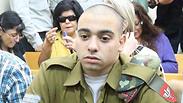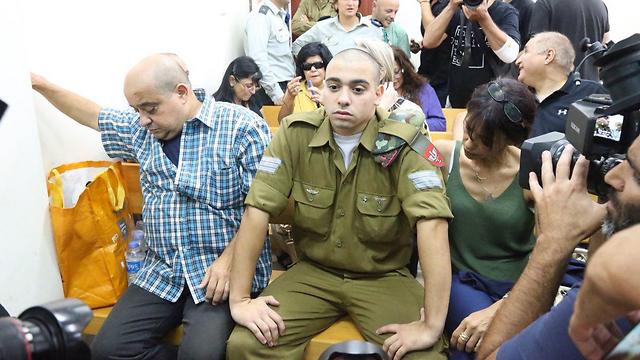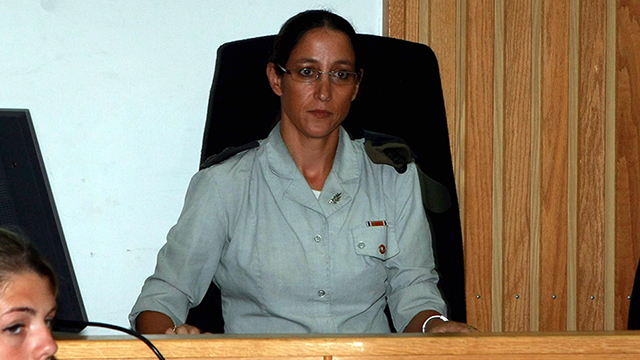
Azaria doesn’t look at Wiesman’s face. “You can show me the video frame-by-frame, you can show it to me a thousand times,” he tells the prosecutor, “I will only testify about what I saw.”
It’s heart-wrenching in a way. Azaria went through a long interrogation at the IDF's Criminal Investigation Division (CID). Then he went through testimony training with his lawyers. They prepared him by repeating questions they would be asking, and questions they thought the prosecution might ask. Repeatedly.
Then all manner of supporters joined in, offering their advice: Family members, political activists and politicians, assorted well-wishers. Questions and answers, suggestions and ideas. Say this, don’t say that. And by the time Azaria reached the stand, it all mixed into a mush in his head. “I don’t remember,” he has repeatedly answered the prosecutor.
“Why are you squirming?” Col. Maya Heller, head of the judging panel, castigated the sergeant, “If you don’t answer, we won’t understand.”
But Azaria held his ground: I don’t remember. In Hebron he acted like a forward thinker. In Jaffa, he can’t think very far back. That’s what he’s been told to do, and he’s doing it.
It’s not really Azaria who’s on trial in Jaffa, but his commanders, and in fact—the entire defense establishment. From the defense minister at the time of the incident (Moshe Ya’alon), down the ranks. The decision to go on the (legal) offensive—to shift the blame from Azaria to the establishment, to turn the suspect into a victim, is a matter of routine. Defense lawyers have always done it. But in Azaria’s case it’s especially significant.
From day one, Azaria received a lot of public adoration. Prime Minister Netanyahu spoke to his father on the phone; Avigdor Lieberman appeared at the courtroom; the media, quick to adopt any shift in public opinion, embraced the family. Marx said that history repeats itself, first as tragedy, then as farce. The Azaria sympathy campaign is a repeat of the Gilad Shalit campaign: The same tear-inducing images, the same spirit of populism. Azaria has become “our boy.”
The defense has been successful with getting the Israeli street on its side. This means, among other things, that hundreds of thousands of shekels were donated to Azaria in just about two days, and will keep his defense lawyers financially secured for a while. The question is how much will public opinion influence the court.
Azaria could have based his defense on the argument that says he was confused and made a mistake. He said this in his testimony as well, but it was a marginal part. His main claim is, basically, that he is a scapegoat. The guard at the gate whose lying commanders are covering their own behinds and leaving him to take the blame. He’s basically Alfred Dreyfus.
Legally speaking, this is a gamble. Supposedly, the defense is forcing the judges to decide between Azaria and IDF Chief of Staff Eisenkot: If one is clean, the other’s dirty. But the court could, of course, ignore this and act as if the accusations leveled at the IDF’s high command don’t exist.
The public campaign surrounding the trial puts part of the Israeli political right in opposition to the IDF. This should not surprise us: Settlers have been conducting a campaign opposing the IDF’s authority for years. But this is something deeper and more far-reaching. The state and its institutions are losing their sacred halo, not just in the eyes of the radical left, but also with the right.
Chief of Staff Eisenkot warned the Knesset Foreign Affairs and Defense Committee of the dangers of politicians’ interference in strictly military matters. These warnings are better said by a prime minister or defense minister, not a man in uniform, but Eisenkot is nonetheless correct. “Those who wish to have a gang ethos should say so,” he said. And indeed, that is what the campaign for the Hebron soldier tells us: A gang ethos is what the people desire.


















